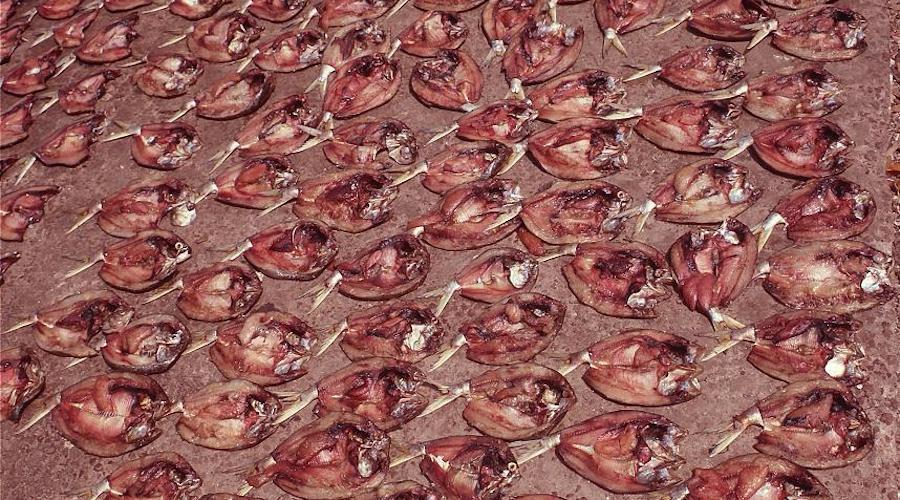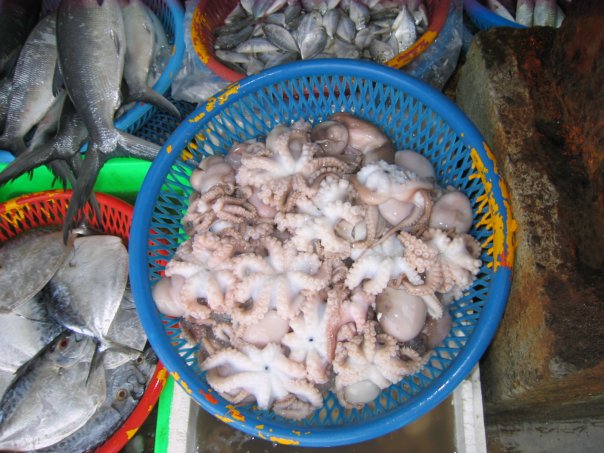In late September, the Sea Around Us principal investigator, Dr. Daniel Pauly, was among the virtual presenters at the World Fisheries Congress 2021, which was held in a hybrid format that included in-person presentations in Adelaide and online lectures, recorded sessions and discussion forums.
Tag: CMSY
World Oceans Day 2021 – Using science to maintain healthy fish populations
To mark World Oceans Day 2021, the Sea Around Us team took on a challenge presented by NGO Mundus Maris and decided to think about one of the many problems our oceans are facing and reflect on the efforts being made to address the issue at hand.
This is how the above video came to be.
Since fisheries are at the centre of our work, we wanted to shed light on how reinterpretations of the Maximum Sustainable Yield model developed in 1954 by M.B. Schaefer are encouraging fishing practices that decimate fish populations.
Based on the paper “MSY needs no epitaph—but it was abused” by Daniel Pauly and Rainer Froese, and the paper “Fishery biomass trends of exploited fish populations in marine ecoregions, climatic zones and ocean basins” by Palomares et al., the video shows how the initial Schaefer model, which refers to the theoretical highest catch that a fish stock can support in the long-term given that environmental conditions do not change much, has been modified by fisheries scientists and managers to a point where it promotes overfishing.
But if kept in its original format and when combined with recently developed computer-intensive stock assessment methods, the Schaefer model has been identified – both in the literature and in the video – as a viable mechanism for effective ecosystem-based fisheries management.
World Fisheries Day 2020 – what research has found
November 21st marks World Fisheries Day.
According to the Institute for Fisheries Resources, this day has been celebrated since November 21st, 1997, when the World Fisheries Forum (WFF) was officially established in New Delhi, India. This non-profit organization is now known as the World Forum of Fish Harvesters and Fishworkers.
Preliminary assessment of 26 West African fish stocks points at overexploited populations

Bonga shad (Ethmalosa fimbriat) taken from the waters of Guinea Bissau. Photo by Falia, Wikimedia Commons.
Twenty-six fish and invertebrate populations that live in the waters of eight West African countries are likely overfished or at risk of being overfished, a new Fisheries Centre Research Report reveals.
Preliminary results from the application of the CMSY and LBB stock assessment methods to fish populations in the EEZs of Cape Verde, The Gambia, Guinea, Guinea-Bissau, Liberia, Mauritania, Senegal and Sierra Leone, indicate that some stocks – such as that of cassava croaker off the coast of Liberia – are strongly overexploited.
Popular seafood species in sharp decline around the world
Fish market favourites such as orange roughy, common octopus and pink conch are among the species of fish and invertebrates in rapid decline around the world, according to new research.
In the first study of its kind, researchers from the Sea Around Us initiative at UBC, the GEOMAR Helmholtz Centre for Ocean Research Kiel and the University of Western Australia assessed the biomass —the weight of a given population in the water— of more than 1,300 fish and invertebrate populations. They discovered global declines, some severe, of many popularly consumed species.






